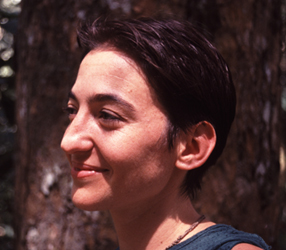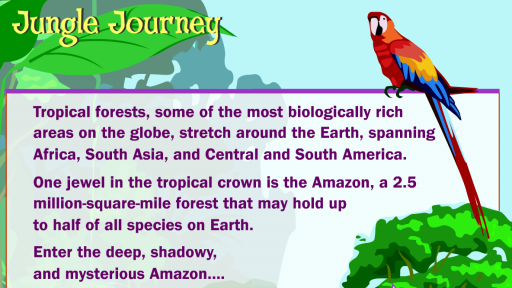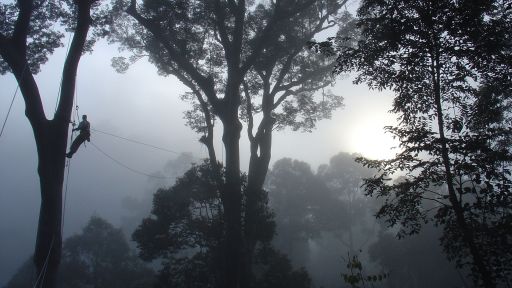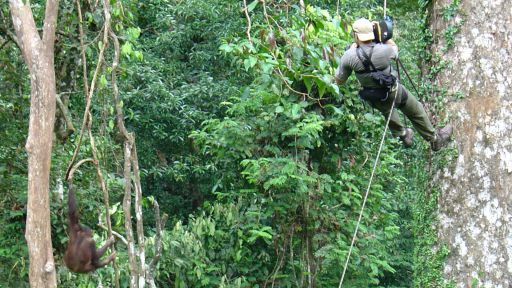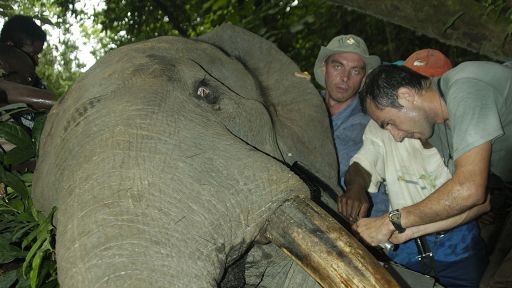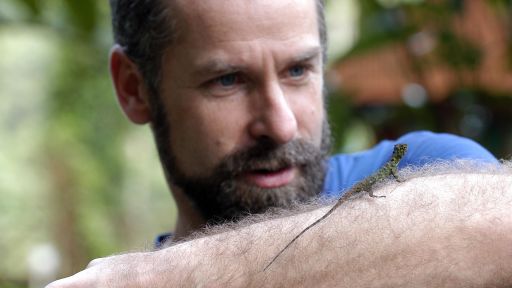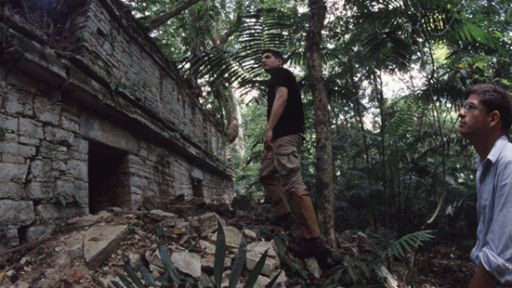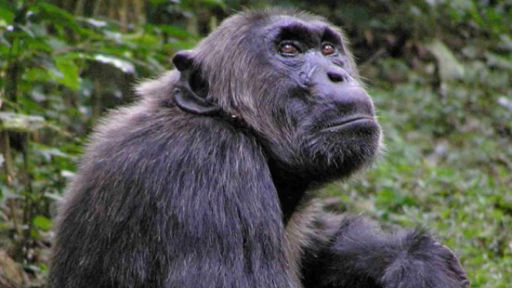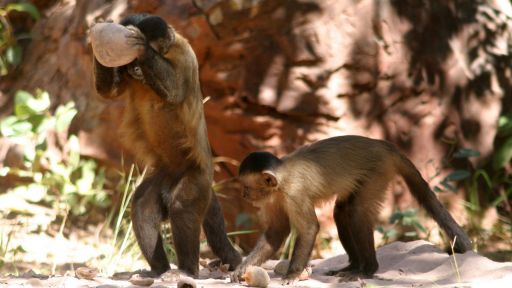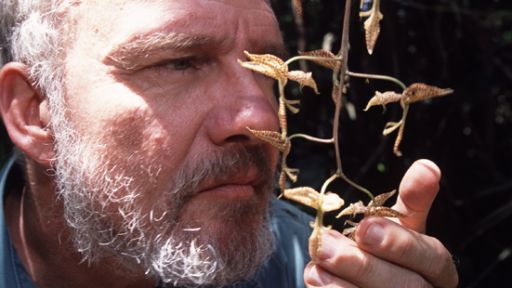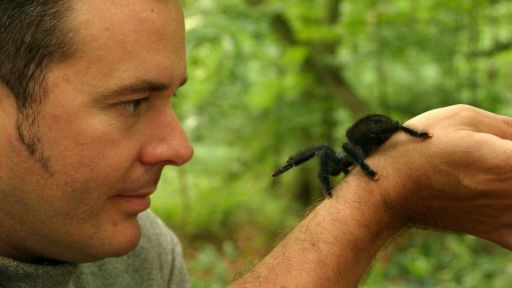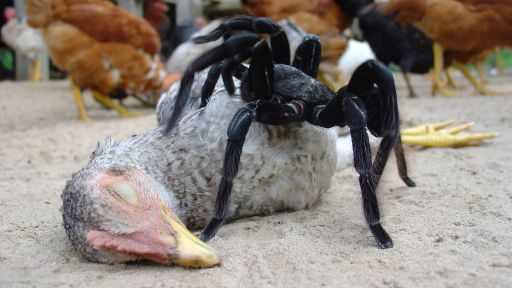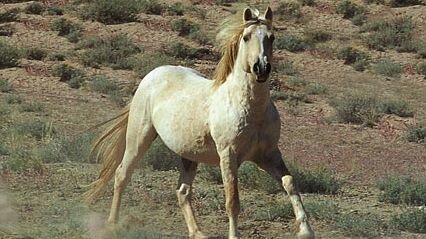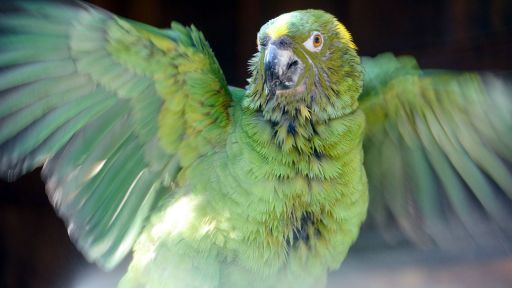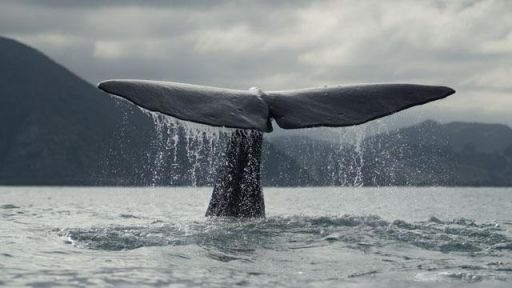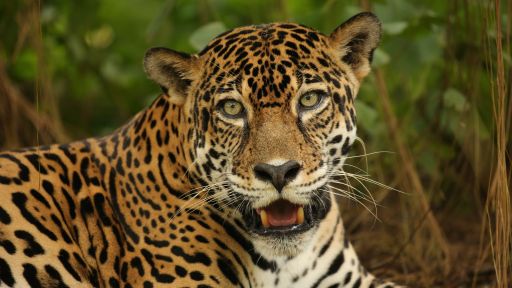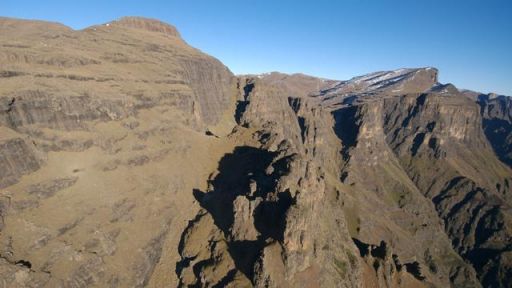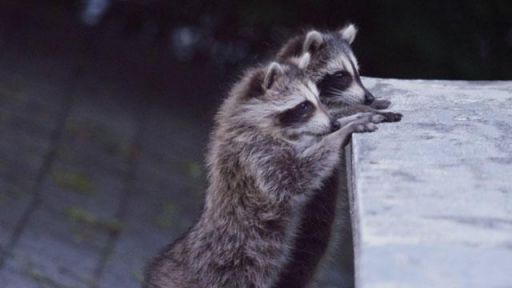Meet the scientists featured in Deep Jungle: The Beast Within.
Chloe Cipolletta
Chloe Cipolletta Since January 1998, Chloe has been attempting to habituate western lowland gorillas in Dzanga-Ndoki National Park in the Central African Republic. Previously she worked with Christophe Boesch to habituate chimpanzees in the Tai Forest off the Ivory Coast from 1994 to 1996, and for a brief period at the orangutan research station at Gunung Leuser National Park in Sumatra.
Although mountain gorilla habituation had been made famous by the work of Dian Fossey, getting western lowlands to accept human presence was thought to be impossible when Chloe first began research. This was due to the extremely dense forest vegetation and the historically poor relationship between gorillas and man in Central Africa (the only humans the gorillas knew were hunters).
From August 1998 on, Chloe and her team focused their study on one gorilla group, the Munye. Alongside BaAka pygmies, who have incredible tracking skills, Chloe was able to locate and then integrate herself with the gorillas nearly every day. The gorillas initially reacted to Chloe’s team with aggression and fear, but as time passed these expressions were replaced, first with indifference to the intruders, and eventually with curiosity about them. By the time NATURE filmed at Dzanga in November 2003, the gorillas seemed almost completely comfortable with Chloe and her team sitting just a few yards away.
Although Chloe’s work, sponsored by the World Wildlife Fund and the German Technical Cooperation, has primarily focused on encouraging tourists to visit Dzanga-Ndoki (thereby providing an alternative to logging as a means of financial stability), it has also allowed new insight into the lives of western lowland gorillas.
David Watts
David Watts David P. Watts (Ph.D., Chicago 1983) is a professor of anthropology at Yale University whose research specialty is the behavior and ecology of nonhuman primates. In Panama, he has done fieldwork on the behavior of white-faced capuchin monkeys; in Rwanda, on the behavioral ecology of mountain gorillas; and in Uganda, on the behavioral ecology of chimpanzees. He was also the Director of the Karisoke Research Centre in Rwanda for two years.
In collaboration with Dr. Jeremiah Lwanga and Dr. John Mitani, David has maintained a research project on chimpanzee behavior at Ngogo, in the Kibale National Park in Uganda, since 1995. With more than 70 adult males and females and approximately 150 individuals in total, this community is the largest that has been reported thus far in the wild. Due to the extremely large number of males in this group, the Ngogo chimpanzees hunt often and with an unusual degree of success. The male chimps also frequently patrol the boundary of their territory. This has led to several documented cases of lethal intergroup aggression. David’s work has contributed to our understanding of why chimpanzees hunt and share meat, and has provided insight into the intriguing evolution of sharing.
Charles Golden and René Muñoz
Charles Golden and René Muñoz Charles Golden is an archaeologist with the University of Brandeis. His particular interest is the pre-Hispanic cultures of Mesoamerica, especially the Mayan civilization. His main field site now is in Guatemala; he has also worked in Belize and Honduras. His doctoral research was carried out in the Royal Palace of the Maya site of Piedras Negras in the Sierra Del Lacandon National Park of Guatemala. He is currently the director of the Sierra Del Lacandon Regional Archaeology Project, the first systematic archaeological survey in this region, which is focused on developing a better understanding of political, cultural, and social boundaries and frontiers between classic Maya polities or city-states. Charles has taught at the University of Pennsylvania, the University of Delaware, and Haverford College.
René Muñoz is a doctoral candidate in the Department of Anthropology at the University of Arizona. He has conducted research in Arizona, Texas, Belize, and Guatemala. Most recently, he has been working as the ceramicist for the Piedras Negras Archaeological Project.
In Deep Jungle, Charles and Rene travel to Guatemala, to a newly discovered Mayan temple called Tecolote. In 2004 they discovered nearly a dozen new sites. Following that field season, they received word that an inscribed monument had been looted from a site previously unknown to them. Luckily, the monument was recovered by the authorities, and these explorers now know there is at least one more big site out there ready for excavation!
Charles Higham
Charles Higham Professor Higham is the James Cook Fellow in the Department of Anthropology at the University of Otago in New Zealand. Since 1969 he has conducted fieldwork in Thailand and Cambodia. His areas of study cover the origins of rice agriculture, the development of the Bronze Age, and the origins of the civilization of Angkor. He has written many books on these subjects, and his work has been recognized internationally with his election as a Corresponding Fellow of the British Academy. On location for Deep Jungle in Angkor Wat, Charles reveals the story of the rise and fall of the civilization that once lived there.

